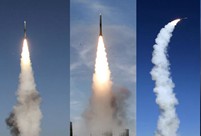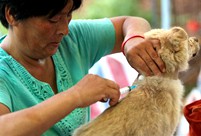

China joined Interpol in 1984. In 2003 and 2005, it ratified the UN Convention Against Transnational Organized Crime and the UN Convention Against Corruption, respectively.
The APEC meetings in Beijing last year saw the adoption of the Beijing Declaration on Anti-Corruption, the first such pact mainly drafted by China. The United States, Australia, Canada and other countries with no extradition treaties with China signed it.
Observers expect China to steer the G20's agenda toward anti-corruption works when it holds the group's presidency in 2016, and there is great excitement over the probability of China joining the OECD's anti-corruption work panel.
The group adopted the Convention on Combating Bribery of Foreign Public Officials in International Business Transactions in 1997.
OECD member states include the United States, Canada and Australia and other developed countries that are favorite destinations for corrupt Chinese officials.
Recent years have seen China take part as an observer in the OECD anti-corruption panel's meeting, but being fully involved will surely be of greater use.
"China's active play in international anti-corruption agencies will provide a favorable policy and institutional environment for anti-corruption work. With internal coordination and cooperation, costs of capturing fugitives will reduced significantly," according to Cai Xia.
Cai said the tightening net around Chinese criminals abroad will deter others from fleeing in the first place.
 |
 4-year-old cute 'monk' spends summer holiday in temple
4-year-old cute 'monk' spends summer holiday in temple College graduates shining on the red carpet in Nanjing
College graduates shining on the red carpet in Nanjing PLA soldiers launch guided missiles in confrontation exercise
PLA soldiers launch guided missiles in confrontation exercise One woman’s fight against dog eaters
One woman’s fight against dog eaters Beautiful and smart - post-90s college teacher goes viral
Beautiful and smart - post-90s college teacher goes viral Top 10 luxury houses in the world
Top 10 luxury houses in the world  National Geographic: best photos during journey
National Geographic: best photos during journey Couples who engage in meaningful and deep conversations are happier
Couples who engage in meaningful and deep conversations are happier Maldives resort rated best hotel of 2015
Maldives resort rated best hotel of 2015  Global attitude poll reinforces old thinking
Global attitude poll reinforces old thinking Luxembourg scholar explodes myths about Tibet independence
Luxembourg scholar explodes myths about Tibet independence Smuggled meat came via Vietnam: official
Smuggled meat came via Vietnam: official Mentally ill confined at home due to lack of resources and public education
Mentally ill confined at home due to lack of resources and public educationDay|Week